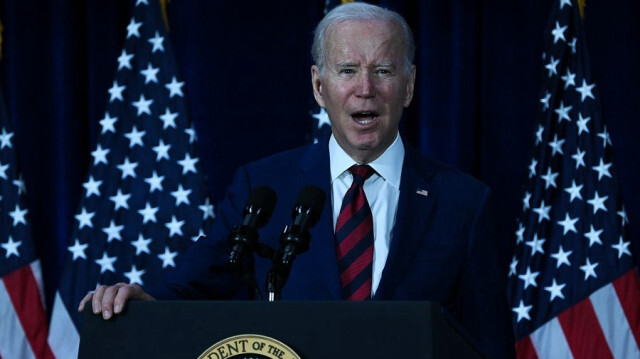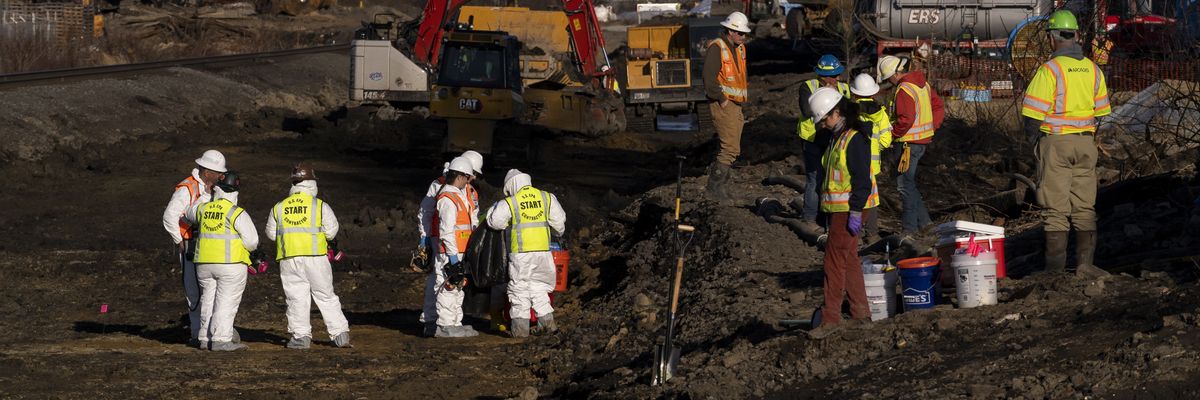Is German industry migrating to the US?

Klaus Ulrich
DW
18/03/23
The Biden administration is luring companies with big subsidies. What would it mean for Germany as a business location if German companies were to invest more in the US and build new production sites there.
German companies love America. According to the German-American Chamber of Commerce, around 5,600 of them have invested in the US market. As of September 2022, that's an investment volume of almost $650 billion (€605 billion). And it's not only big firms like Siemens, Volkswagen or Linde that are currently looking to strengthen their commitment to the United States — in some instances, even building entire new production facilities.
"There are various reasons for it," says Dirk Dohse, who heads the Innovation and International Competition Research Center at the Kiel Institute for the World Economy (IfW). "One is the increase in geopolitical tensions. Many German companies see the US as a 'safe harbor.' Other reasons are the comparatively low energy costs and the very generous subsidies provided under the Inflation Reduction Act."
Inflation Reduction Act is attracting companies
The Inflation Reduction Act (IRA) is a multi-billion-dollar subsidy program initiated by the US government under President Joe Biden. Despite its name, its goal is not so much reducing inflation as climate protection. There are around 430 billion dollars in the IRA pot, of which 370 billion are earmarked for the promotion of CO2-saving technologies, with rest designated to go toward healthcare.

Joe Biden's Inflation Reduction Act seeks to bring investment back to the US
However, the subsidies and tax credits are linked to the companies benefitting from them either using American products or manufacturing their own products in the United States. Thus, for example, the buyer of an American electric car with a battery that was also made in the USA would receive a premium of around 7,500 dollars. Wind turbines or solar farms with American components will also be subsidized. From an American perspective, primary products from countries with which the US has a free trade agreement, such as Mexico or Canada, are also acceptable.
Companies are already reacting
The US government's subsidy plans under the IRA have already resulted in delays to electric car battery production plants in Germany, or the threat of them being stopped altogether — Tesla in Grünheide near Berlin, for example, or the Swedish company Northvolt, which has been planning to build a factory in Heide, Schleswig-Holstein, but will now probably invest in the US first.
So should Germany be worried about its status as a manufacturing location? "It's true that the manufacturing sector's share of the total value added in Germany has been declining since 2016," says Dirk Dohse of the IfW. "However, we're also starting at a high level. I don't see deindustrialization happening across the country."

There's a Tesla factory just outside Berlin but the US wants jobs to move back home
Patrick Pleul/dpa/picture alliance
Chancellor Olaf Scholz and the president of the EU Commission, Ursula von der Leyen, have already made representations to US President Joe Biden, warning that the lavish US subsidies may lead to a distortion of competition for European companies vis-a-vis their US rivals.
Shortly afterward, it was announced that Brussels intends to counter the IRA with its own green program for industry, and will also give EU states greater freedom to provide subsidies of their own.
Danger of a "subsidy spiral"
Economists think a confrontation like this would be a dangerous move. "I don't think we should get into a race for subsidies," says Dohse. "In the end, this is taxpayers' money. We need to think carefully about whether this is going to pay off for society in the long term."

Amazon is one of the American companies with the highest turnover in Germany
Stefan Ziese/Zoonar/picture alliance
It was, he said, extremely disappointing when innovative companies, such as those working in the field of "green technologies," which have been grown, sustained and nurtured with German or European taxpayers' money, are then enticed to the US by the subsidies available to them there. "But throwing more taxpayers' money after them is not the solution," Dohse says. He suggests that one approach to consider would be linking individual federal subsidy programs for young companies to a certain degree of loyalty to location.
Germany as a location: praise and criticism
So if many German companies are investing more heavily in the United States in order to benefit from the IRA subsidies, how do internationally active American companies rate Germany as a business location?
"Europe's largest economy remains an important and attractive location for many US companies," Simone Menne, the president of the American Chamber of Commerce in Germany (AmCham Germany), told DW. "Its many very well-trained skilled workers, dense infrastructure networks, first-rate technical colleges and universities, great political stability, strong presence on the EU market, and other factors are important arguments in favor of investing in Germany."

The American car maker Ford is based in the western German city of Cologne
Oliver Berg/dpa/picture alliance
However, the annual Transatlantic Business Barometer, the latest edition of which was published on March 16, is less optimistic. According to this AmCham Germany survey of US companies in Germany, the country's location rating dropped in 2023 for the third year in a row.
In last year's Business Barometer survey, 59% of US companies in Germany rated their location as "good or very good." In 2023, that figure went down to 34%. There is praise for the quality of the workforce (94%), supplier networks (68%), and research and development (68%). However, only 38% of the US companies expected Germany to improve as a location over the next three or four years, compared to 43% in 2022.
High energy prices are a deterrent
However, it is also the case that many of the American companies surveyed in Germany in 2022 reported an increase in turnover (68%), number of employees (42%), and investment (42%). 53% of those surveyed expect their turnover to increase in 2023, and the same number said they would be expanding their operations over the next three to four years.
The disadvantages they see in Germany are the cost of labor, the digital infrastructure, and a lack of skilled workers. However, they reserved their strongest criticism for the high energy prices, even compared to other countries, and even before Russia instigated the war in Ukraine.

Apple CEO Tim Cook at the company's engineering hub in Munich where they plan fresh investments
Apple/dpa/picture alliance
"They play an important part in location decisions, especially with energy-intensive companies," says the AmCham president, Simone Menne. Germany therefore needs to be even more convincing in other ways, she says. It must improve its offer by securing skilled workers, reducing bureaucracy, and broadening digitalization. "This will be helpful not only in securing investment from the United States," Menne says.
IfW economist Dirk Dohse points to a decision by the US technology giant, Apple: It is about to spend another billion euros extending its chip design center in Munich. "If Germany invests wisely in research, training, and infrastructure, instead of wasting taxpayers' money on subsidies, it will remain an attractive location for foreign investors in the future," Dohse believes.
This article has been translated from German.



















 British Home Secretary Suella Braverman (centre) defended a controversial plan to deport asylum seekers to Rwanda, during a visit to the country on March 18, 2023.
British Home Secretary Suella Braverman (centre) defended a controversial plan to deport asylum seekers to Rwanda, during a visit to the country on March 18, 2023. .jpg)



